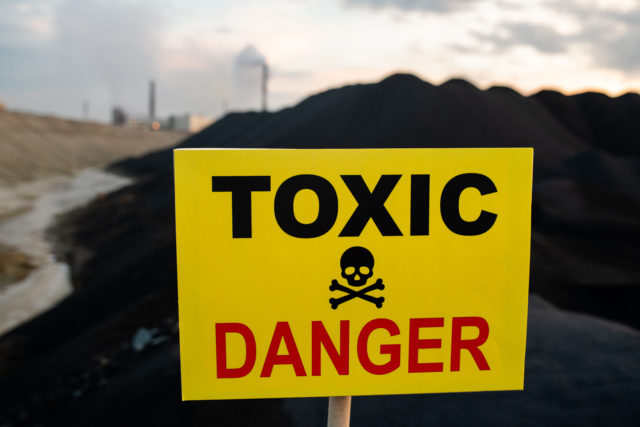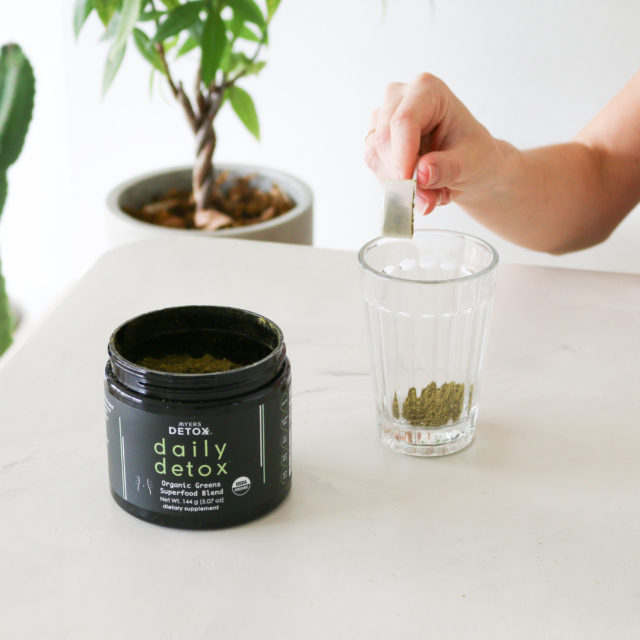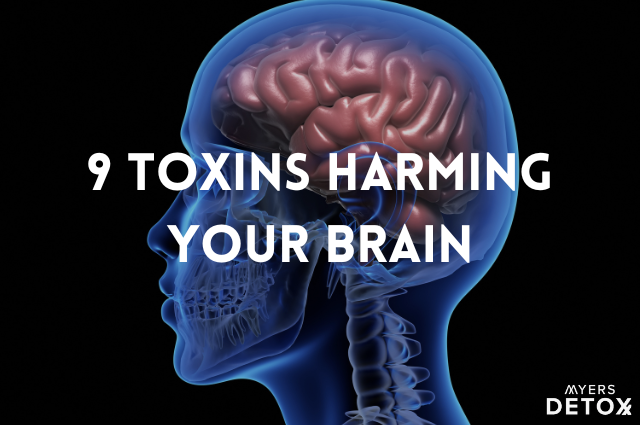Research shows that toxic compounds in the environment directly impact your telomeres – those little structures at the end of your chromosomes that are directly related to longevity.
While research into the genome is ongoing, one thing that seems to be clear is that lifestyle factors that increase telomere length keep us healthy, while those that shorten our telomeres do the opposite.
But what are telomeres, anyway? And which toxins are set out to attack these protein structures?
In this article, you’ll learn:
- The critical function of telomeres for your cells and their role in longevity
- How our food supply is riddled with telomere-attacking compounds
- Other sources of toxic chemicals that shorten telomeres, including personal care products, receipts, and even textiles
- The most effective steps you can take to protect your telomeres and promote a long and healthy life
What Are Telomeres?
Telomeres are protein structures that sit at the end of your chromosomes, protecting the information stored in your genome.
Okay, for all of you non-science nerds, let’s break that down a little:
Chromosomes house your genetic information in the form of DNA. DNA is passed from parents to offspring and contains specific instructions that make you uniquely you. Put simply, it contains all the information you require to grow and function[1].

As you might imagine, the information held within your chromosomes is precious material, which is where your telomeres come in.
Telomeres are repetitive stretches of DNA that sit at the end of your chromosomes, protecting them from degradation. Think of the plastic that wraps the end of your shoelace so it doesn’t fray – that’s the telomere.
Now, here’s where aging enters the story. Every time your cells divide, your telomeres become slightly shorter. Over time, they shorten so much that they can no longer protect your chromosomes, and the cell dies. Generally speaking, shorter telomeres are associated with an increased incidence of disease and poor survival. In this way, many researchers have begun looking at telomeres like a biological clock to help determine an organism’s lifespan[2][3].
As we age, our telomeres naturally become shorter. But that’s not the end of the story.
Studies show that lifestyle factors such as diet and exercise can impact the rate of telomere shortening and, in some cases, even lengthen telomeres – pretty amazing.
On the flip side, several environmental and lifestyle factors can increase the rate of telomere shortening – not so amazing.
As research continues to focus on telomere health, toxic compounds have emerged as one of the most profound contributors to telomere shortening; let’s look at some of the biggest culprits.
4 Toxins Shortening Your Telomeres

#1 Pesticides
Pesticides are widely used on almost all conventionally farmed produce and may even contaminate organic produce if the crops are close enough to the pesticide-sprayed crops. While there are myriad concerns around pesticides, one that is not often discussed is the impact these chemicals can have on our telomeres.
Studies show that people with higher levels of pesticides in their bodies tend to have shorter telomeres. And in fact, even living close to an agricultural field that uses pesticides can increase your risk of telomere shortening[4].
Unsurprisingly, this association was even stronger in those who work with pesticides, such as field workers[5].
#2 BPA
BPA (bisphenol A) is a chemical found in plastics and epoxy resins – and they’re everywhere in our food supply. You can come across BPA in plastic water bottles, the lining of food cans, plastic food containers, plastic wrap, plastic cups, plastic cutlery, and paper receipts. Also, anything you buy in the frozen section of your grocery store may be lined with BPA-containing plastics.
Cell studies show that long-term low-dose exposure to BPA can accelerate telomere shortening. The fact that research is done on low-dose exposure is key, as this indicates that we don’t need to be mainlining BPA every day to see the negative impacts. Most of us regularly come into contact with low doses of BPA, making its impact on telomeres even more significant[6].
Other research shows that higher levels of urinary BPA are associated with shorter telomeres – particularly in women[7].
One hypothesis for BPA’s negative impact on telomeres is this chemical’s potential influence on telomerase – the enzyme responsible for the regulation of telomere length[8].
#3 Heavy Metals
Heavy metals are everywhere: food, water supply, personal care products, clothing, etc. While the most direct route of exposure is through food and water, we can’t count out the other sneaky ways that these toxins make their way into our bodies.
Research shows that heavy metal exposure is directly related to telomere length. Since telomeres are highly sensitive to oxidative stress, exposure to heavy metals may damage them directly via the oxidative stress pathway[9][10][11][12].
Sadly, studies also show that newborn telomere length tends to be shorter in infants whose mothers had high levels of heavy metal exposure during pregnancy[13].
#4 Triclosan
Triclosan is an antimicrobial agent used in various personal care and consumer products. Its use is so ubiquitous that reports estimate that 75% of the US population is likely to be exposed to it[14].
Most triclosan exposure comes from personal care products like fluoride toothpaste, mouthwash, facial cleaners, deodorants, cosmetics, and detergents. That said, it’s also found in textiles and pesticides – so it truly is everywhere[15].
Research shows that triclosan may directly impact telomere length in a similar way to heavy metals – by instigating oxidative stress[16].
Furthermore, animal research has found that prenatal exposure to triclosan can result in shortened telomeres, specifically in the brain[17].
How To Protect Your Telomeres For a Longer, Healthier Life

Now that we’ve covered the bad news, let’s turn the page and look at the good news: You can leverage lifestyle and dietary factors to give yourself an edge on telomere shortening.
1. Exercise
You know physical activity is critical to overall health, but did you know that it can directly impact telomere length?
Specifically, research shows that aerobic exercise performed regularly over six months can positively and significantly impact telomere length[18].
But here’s the deal: A meta-analysis of several studies found that although regular aerobic exercise yielded the best results, a more powerful measurement of telomere health related to physical activity is simply reducing sedentary behavior[19].
In other words, just move more.
2. Diet
Heavy metals, pesticides, and BPA can all be found in our food supply, making diet an obvious factor to consider when trying to reduce exposure to telomere-shortening compounds.
But what type of diet specifically helps to keep your telomeres nice and healthy?
Studies suggest that antioxidant nutrients, consuming organic fruits and vegetables, omega-3 fats, and following a Mediterranean diet are all associated with longer telomeres[20].
In addition, including more fiber and fewer omega-6 fats in your diet may also positively impact telomeres[21].
Furthermore, engaging in practices like intermittent fasting or dietary restriction also appears to help lengthen telomeres and increase lifespan – at least in animal studies. This may be due, in part, to the reduced burden of oxidative stress that naturally occurs when we reduce caloric consumption[22].
3. Stress Management
You hear it all of the time– stress is a silent killer.
Well, as it turns out, one of its primary weapons may be its impact on telomere length.
While there are many proposed theories on how stress impacts telomeres, inflammation and oxidative stress likely play a role. When you’re stressed, it causes an increase in stress hormones like cortisol, which in turn eat away at your antioxidants. Without sufficient antioxidants, your telomeres are more vulnerable to oxidative damage, resulting in telomere shortening[23].
On the other hand, practices that reduce stress, such as yoga, breathwork, and meditation, have been shown to promote telomere stability[24].
4. Avoid Toxins That Attack Telomeres
Of course, the first step is reducing exposure to toxic chemicals like pesticides, heavy metals, BPAs, and triclosan. That said, these compounds are ubiquitous in the environment which means that it may take a little more than just consciously avoiding them to truly protect yourself.
This is where detox comes in.
5. Optimize Detox Pathways
While lifestyle factors like diet, stress reduction, and exercise are crucial for health and longevity – alone, they won’t be able to fight the toxic insults in our environment.
The only way to ensure your body has the best chance against these compounds is to support your natural detoxification processes. The good news is that some powerful nutrients are tailor-made to help you do just that.
For example, dandelion, burdock, milk thistle, and turmeric are excellent all-around liver detox support foods. And broccoli sprouts, alfalfa, parsley, and celery not only add to your detox capacities, but they’re also anti-aging – that’s a two-for-one.
I include all of these superfoods and many more in my Daily Detox blend, which was formulated specifically to cover all of your detox needs in a gentle yet powerful nutrient-rich package.
Takeaway
While many factors play a role in health and longevity, the recent research around telomeres is not only interesting – it’s incredibly compelling.
If we can find a way to slow down the pace at which our cells die, we can protect the health of our organs and tissues and, ultimately, our entire body.
Toxic compounds in our environment seriously threaten telomere health, but for every downside, there is an upside. And in the case of telomeres, our ability to manage our lifestyle choices has a big upside.
In addition to clean eating, regular movement, and stress management, be sure to get regular detox support on board to give your telomeres the extra edge they need against the ubiquitous toxins in our environment.
For a simple, all-in-one, daily solution, I highly recommend checking out Daily Detox.










